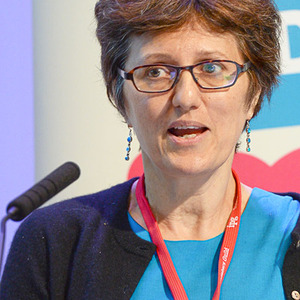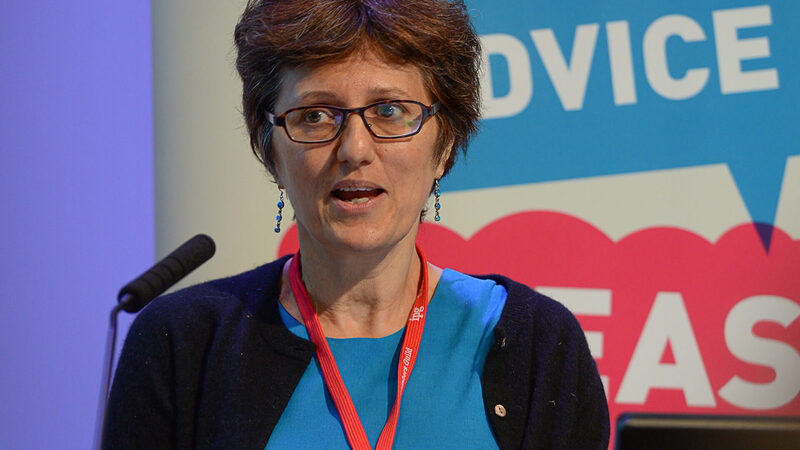You are viewing your 1 free article this month. Login to read more articles.
Beware the special sale
Dear publishers,
Please reassure authors by taking seven simple steps to ensure that special sales do not damage authors’ overall earnings or the market for full-price sales.
What are we talking about? This is not about ordinary high discounts, such as those demanded by Amazon (although those cause concern to authors and booksellers), but about sales where the purchaser pays a very low price per copy for a large quantity of copies, paying up-front and “firm” for all those copies. Such deals appear in contracts under a variety of clauses, including as bulk sales or ultra-high discounts, book club and similar, coedition, special, premium, mail order, own brand, sales at discounts of 80% or more, supermarket, cheap editions and remaindering. They can also include non-traditional retail outlets, which covers outlets such as museum shops, cafés and high-street retail chains, which we know are becoming an increasingly significant market for certain publications, including craft, cookery and art books.
We do appreciate that knowing at the outset that such payment is guaranteed, and factoring in economies of scale, can affect the publisher’s budgeting decisions, particularly with highly illustrated works which remain disproportionately expensive to produce. We know that such deals can reach purchasers who would not buy the book full price and can be useful for books that have been selling poorly. They can also give a boost to an author’s backlist titles in the wake of publication of a new title, or promote a special edition. Publishers tell us that they do not believe that such sales compete with full-price sales.
So what’s the problem?
Our first concern is competition. The huge discounts offered on these books, and the fact that the purchaser has bought them “firm”, so will want a way to dispose of surplus copies, mean that they can be sold on for a very low price. The internet has changed the way we buy books, and cheap copies, which used to be sold to discrete markets, can end up competing directly with conventional titles. The sale of discounted books on Amazon Marketplace is a major concern, since they will be listed alongside full-price copies. This will be exacerbated if Amazon brings the US initiative of winning the Buy Box [whereby third-party resellers compete for the button that purchasers press first to select a product for purchase] to the UK: a conventional, full royalty-bearing sale could be demoted to promote a highly discounted or pristine second-hand copy. Publishers argue that for Prime customers, who benefit from free delivery, alternative routes can prove more expensive than buying from Amazon; but a cursory view shows that for a wide selection of books, particularly paperbacks or backlist titles, it is still cheaper to buy from a third-party. Only copies which, theoretically at least, are legitimately available appear on Amazon: so where are all these cheap books coming from? It is clear some heavily discounted titles intended for export or book clubs are being leaked onto Amazon Marketplace. Paperback copies are usually available on Amazon from other sellers well before they are available from the publishers, often on publication of the hardback. Authors receive very low royalty rates on such sales, much less than on a full-priced home market sale of the book. On second-hand copies, e.g. the resale of special copies and remainders, neither author nor publisher earns anything, but such sales can cannibalise “proper” ones.
The art of the deal
Of course publishers have no control over the price at which a book is sold to the customer (except where they use the Agency Model). And no matter what a publisher might say to a customer about market restrictions, once they’ve made a sale in the EU, no publisher can prevent them from re-selling the books (due to the “exhaustion of rights” in the EU). For that reason, we would urge publishers to exercise caution. All such deals should be considered carefully. Don’t supply books at an ultra-high discount, unless the author and the publisher agree that the deal is worth it. Deals about which we have heard regular complaints over the years include partial remaindering (notably the tail-end of the hardback run in anticipation of paperback launch), covermounts or book club loss-leaders (e.g. a romantic novelist’s one and only title being used as a giveaway to promote a wider romantic list) and—the most prevalent—special deals being permitted at the peak of a title’s life. The children’s market seems to be especially subject to special deals.
There are other concerns too. Contract terms on special sales can be hard on authors. Special sales income is usually based on money received by the publisher, not cover price, so authors can earn far less. In some contracts where royalties are based on net receipts, the percentage rate payable to the author reduces when the discount increases. That is simply illogical.
And it isn’t always clear that a large proportion of an author’s sales will be at discounted rates rather than the headline rates in the agreement.
Authors’ profiles can suffer too. If an author is associated too often with bargain books it can damage their brand. And special sales are not recorded by Nielsen BookScan, so they don’t appear in official sales figures. The same is true of publisher records: special sales will be described as subsidiary licensing with sales statements detailing income paid and not the number of units sold, leading to underestimates of how many copies have sold. But publishers consider previous sales when deciding whether to commission another book. In one case, a publisher lost a TV deal because it could only prove 500,000 trade sales from its records, whereas it had earlier (more accurately) claimed that the series had sold over a million copies.
High street bookshops, wholesalers and distributors cannot compete with low-priced sales and may decline to stock these works. And seeing books for sale so cheaply can damage the perceived value of books and the price that readers expect to pay for them. This was less glaring when special sales editions were branded, of a cheaper quality, had different jackets and were clearly destined for a different market. These days they are often indistinguishable from full-price editions.
The seven steps
1. Consult and involve
Publishers should give the author a right of approval over every special sales deal (even if the current contract does not include such a right). Discounting is sometimes a valid strategy and publishers risk losing as much as the author if deals cannibalise conventional sales. But an author usually only has a handful of books from which to earn, while publishers have many, so an author is more at risk if the strategy does not work. authors may also have more than one publisher, so have a broader view of the overall sales picture. A publisher should always explain the reasons why it wants to do a deal, the likely receipts for the publisher and author, and the likely impact on traditional sales. Hachette has already given us an assurance that it will always consult authors and seek permission before entering into special sales.
2. Inform
When negotiating the contract, tell the author which royalty clauses you anticipate affecting a significant quantity of sales in the first couple of years. Without such explanation, contracts can be extremely misleading.
3. Share the hit
If the author’s royalties are based on net receipts, the percentage rate payable should not be reduced when the discount increases.
4. Protect
Take steps to ensure that books are only sold in the channels for which they are intended and do not leak back to full-price outlets, particularly on Amazon. Give a separate ISBN to each special sales edition, and add appropriate restrictions, where lawful, to make the books traceable and non-returnable. Hachette has agreed to this.
5. Differentiate
Differentiate special sales editions from the full-price edition. If they are cheaper, the quality should not be as high. This will help protect bookshops and other full-price outlets.
6. Monitor
Monitor closely and follow up suspicious sales on Amazon. Stop selling to purchasers who leak books.
7. Record
Include special sales figures in your records of a work’s lifetime sales. Tell authors the size of print runs. Join us in encouraging Nielsen Bookscan to record special sales alongside traditional sales.
We urge every publisher to contact the SoA and openly agree to the seven steps. This will help authors, publishers and booksellers maintain the best prices for books, reduce unfair competition, reward authors appropriately and maximise sales revenues.
Nicola Solomon is chief executive of the Society of Authors.




















